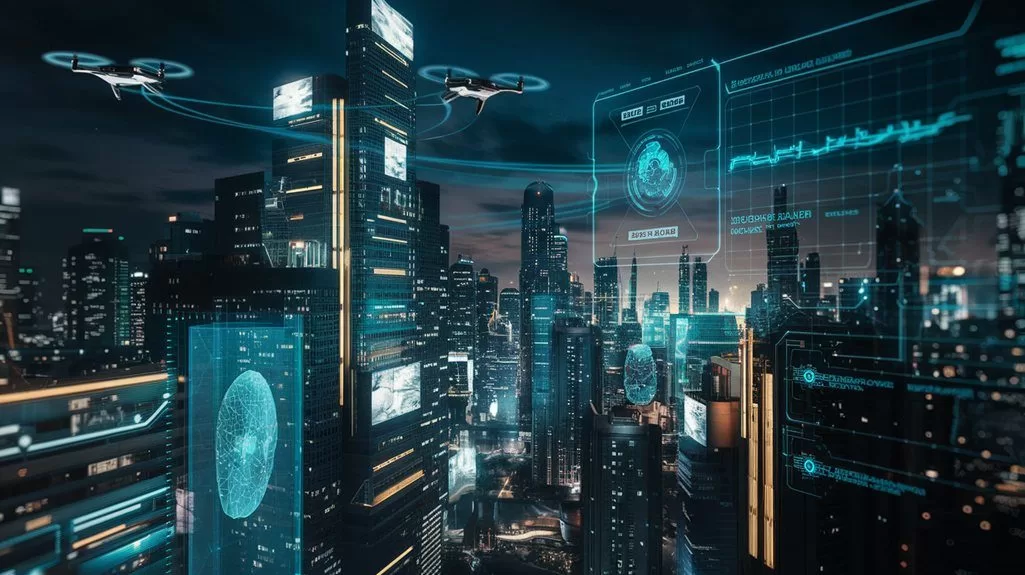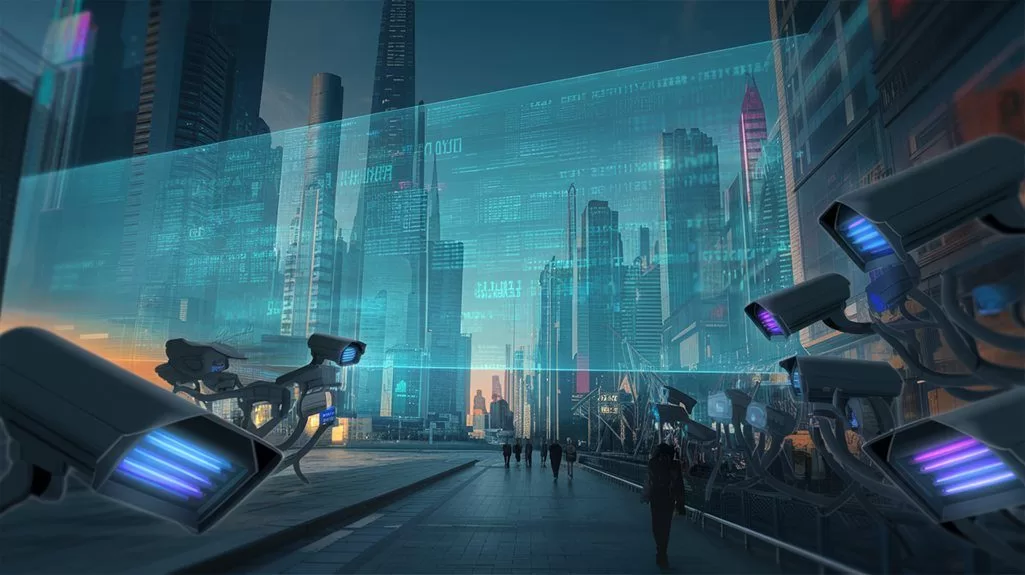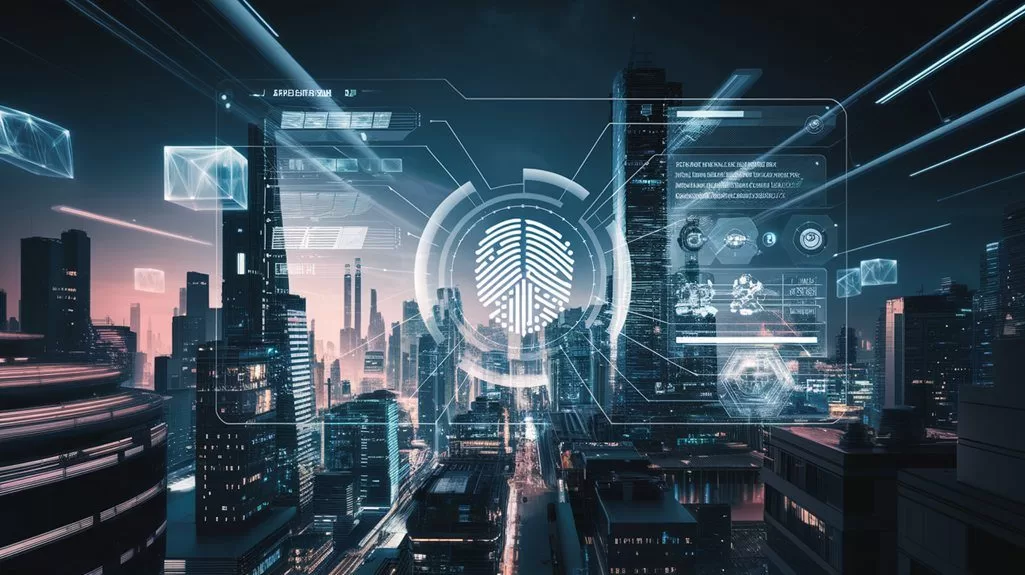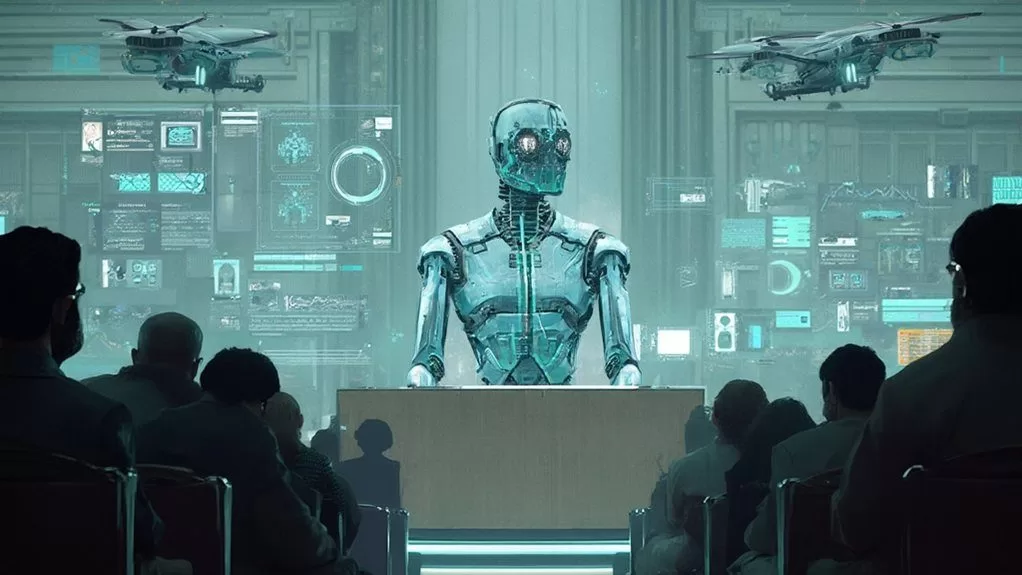DOGE's AI initiative, led by Elon Musk, aims to automate numerous federal tasks. This might seem revolutionary, but around 20% of federal jobs face the axe to AI. Supporters tout efficiency, while critics grimace at AI's lack of empathy and judgment. Worries about accountability and workers' rights loom large, with Musk's unproven claims of reducing waste adding fuel. AI might streamline duties but at what cost to human dignity? Discover deeper insights and opinions ahead.
Key Takeaways
- DOGE's AI initiative aims to automate 20% of federal jobs, potentially replacing human workers with algorithms.
- Critics argue AI lacks necessary empathy and judgment for sensitive government tasks, raising ethical concerns.
- Federal employees face challenges from AI errors, with some reinstated after wrongful terminations.
- AI's efficiency in streamlining processes is acknowledged, but it complicates accountability and oversight responsibilities.
- Public sentiment is skeptical, questioning whether AI can truly replace the nuanced decision-making of human workers.

While the vision of DOGE introducing AI to automate government tasks sounds futuristic, it's not all glitter and glory. With Elon Musk's backing, this ambitious project paints a picture of sleek efficiency. Yet, automation ethics and workforce implications cast long shadows over this shiny new era. The promise? Reduced federal workforce, streamlined processes. The reality? A mixed bag of skepticism and concern.
Approximately 20% of federal jobs could soon find themselves outsourced to algorithms. Tasks like data processing and customer service? Perfect for AI. But let's not kid ourselves—robots don't do empathy. Critics argue that AI's lack of human judgment is a glaring flaw, especially when government work demands a certain level of humanity. Ethical concerns in AI-driven systems must be systematically addressed to maintain a balance between efficiency and fairness. So, are federal workers being replaced by intern-level automation? Depends on whom you ask.
Federal jobs outsourced to algorithms—AI lacks empathy, critics highlight the absence of human judgment.
DOGE's AI chatbot is making its rounds, whispering sweet nothings of efficiency into federal ears. But not everyone is enamored. Automation ethics are a hot topic, with questions swirling about transparency and accountability. Who holds the strings in this puppet show? With AI decision-making tools potentially biased, fairness gets a seat at the contentious table.
And what about the workers' rights? Federal employees, shielded by statutory rights, might find these protections tested by the cold logic of AI. The workforce implications are not trivial. Some terminated workers have been reinstated after AI-driven errors. Oops. Public criticism? Loud and clear. The idea of machines deciding one's professional fate is unnerving. Nobody wants to be judged by an algorithm that can't appreciate the nuance of human effort. The public response has been anything but warm.
Yet, there are efficiency gains to be had. AI can cut through bureaucratic red tape with the precision of a hot knife through butter. But this comes with oversight challenges. Who watches the watchers when the watchers are lines of code? Despite these concerns, Musk claims to have identified significant fraud and waste in government operations, though he lacks extensive evidence.
DOGE's operational model raises eyebrows. The transparency—or lack thereof—in AI's decision-making process is a sticking point. Accountability issues loom large, casting doubt on the ethical standing of these systems. The public perception isn't rosy, with criticisms regarding the perceived impact on federal workers' dignity. Deployment has accelerated recently, indicating a commitment to rapidly integrating these technologies into government operations.
In the grand scheme, this is about budget savings—streamlining tasks to save dollars. But leaner doesn't always mean better. Can AI truly replace the nuance of human decision-making? The jury's still out, and the courtroom is packed with those yearning for a sense of belonging in an increasingly automated world.
References
- https://fortune.com/2025/03/10/elon-musk-doge-automating-government-tasks-ai-chatbot-slash-federal-workforce/
- https://www.cio.com/article/3828445/musks-plan-to-replace-government-workers-with-ai-could-create-chaos.html
- https://epic.org/seems-a-bit-doge-y-protecting-federal-worker-rights-in-an-era-of-ai-driven-employment-decisions/
- https://www.nbcconnecticut.com/news/national-international/doge-ai-assess-emails-federal-workers-told-to-justify-jobs/3506268/?os=ioxa42gdub5u1enqic
- https://www.bls.gov/opub/mlr/2025/article/incorporating-ai-impacts-in-bls-employment-projections.htm









